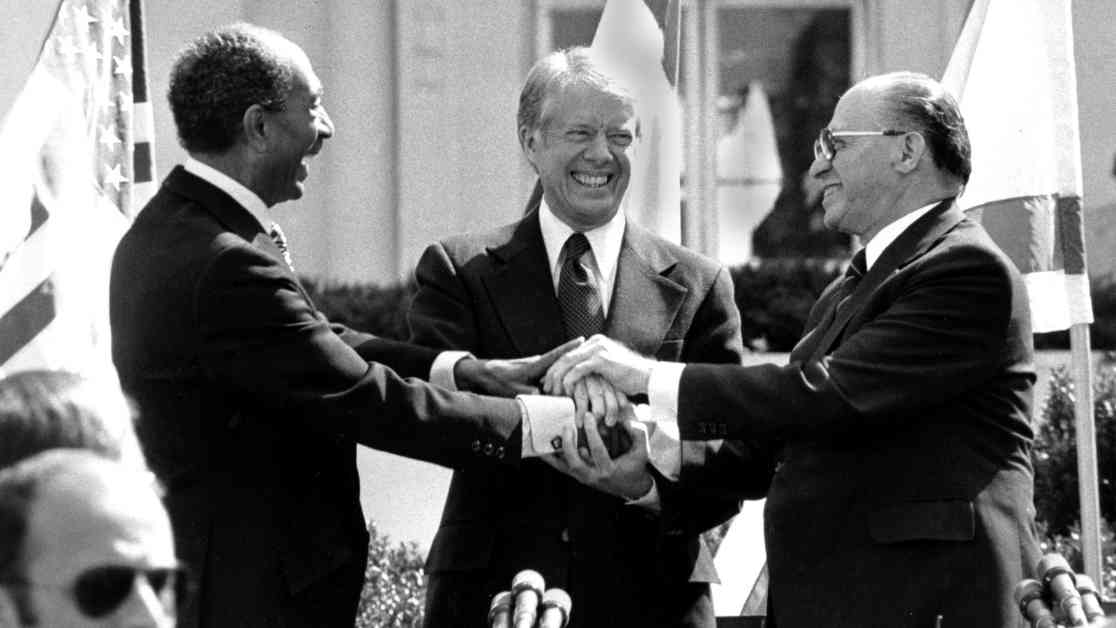Jimmy Carter’s Diplomatic Legacy: A Comprehensive Analysis
Former President Jimmy Carter’s foreign policy track record was defined by both highs and lows during his tumultuous years in the White House. One of the peaks of his presidency was brokering the Camp David Accords, a groundbreaking set of treaties between Israel and Egypt that reshaped the diplomatic landscape of the Middle East. However, Carter also faced significant challenges, such as the Iran hostage crisis, a 444-day ordeal during which 53 American diplomats and citizens were held captive in Tehran.
‘Fairness not force’
After leaving the White House in 1981, Carter found solace in his native Georgia following a devastating defeat by Ronald Reagan. However, the assassination of Egyptian President Anwar Sadat reignited Carter’s passion for diplomacy. Sadat’s death, following their joint efforts to negotiate peace, spurred Carter to establish The Carter Presidential Center, a nonprofit focused on promoting human rights globally.
Throughout his career, Carter advocated for advancing human rights as a cornerstone of U.S. foreign policy, a bold stance during his time in office. His negotiations with Panama to transfer control of the Panama Canal in 1979 were aimed at fostering fairness and cooperation between nations, despite occasional missteps along the way.
A matter of timing
While Carter’s embrace of human rights faced criticism and challenges, analysts argue that his approach laid the groundwork for future diplomatic strategies. By prioritizing human rights in bilateral relations, Carter shifted the Cold War dynamic and empowered oppressed populations in the Soviet bloc.
Leslie Vinjamuri, director of the U.S. and Americans program at Chatham House, lauds Carter’s visionary approach to human rights promotion, which continued to shape his post-presidential efforts. Carter’s dedication to advancing democracy and peace led him on missions to conflict zones worldwide, including Bosnia, Ethiopia, Eritrea, and Haiti.
No boundaries
Carter’s willingness to engage directly with global leaders, even those considered adversaries, was a defining feature of his diplomatic style. From recognizing Beijing as the sole legal government of China to visiting Cuba and Africa, Carter’s commitment to crossing boundaries in pursuit of global good sparked both praise and controversy.
In Africa, Carter’s compassion and willingness to confront stigma surrounding AIDS/HIV left a lasting impact. His embrace of babies infected with the virus, alongside Nelson Mandela, showcased a humanity that transcended political divides and resonated with people around the world. Dr. Helene Gayle, president of Spelmen College, recalls the profound message of love and acceptance that Carter’s actions conveyed, echoing a sentiment shared by many who witnessed his remarkable efforts.


